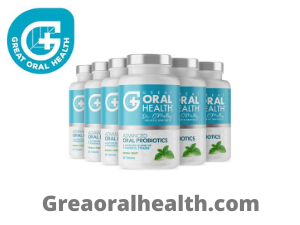New Natural Product
Don't give up! There's an organic product that can assist you
in getting rid of that biofilm sticky regardless of whether you've classified
yourself to be an individual who is genetically plague-challenged. Dental Probiotics
K12 can assist in balancing the mouth's
bacteria to reduce plaque, lessen bad breath and even enhance your smile.
Dental Probiotics is a term that means "pro
life". Dental Probiotics are often referred
to as friendly microbes or beneficial bacteria. There is a
chance that you have heard of "live and active cultures" in yogurt. Dental Probiotics
(something very few known about one year before) are now included in the top
five foods that consumers want to incorporate into their diets, according to a
Chicago-based business which tracks trends in consumer behavior. Dental Probiotics
K12 are just beginning get U.S. consumer attention after years of sales and
a wide consumption across Europe in Europe and Asia.
Researchers have found that when utilized
in the mouth, Dental probiotics may help in preventing the growth of pathogens
responsible for dental problems. Gumivitis and dental cavities result from the
action of pathogens attacking food particles that are rotten. Dental Probiotics
slow the growth of pathogens since they compete for the similar food particles
that have been spoiled. This is referred to as competitive
exclusion. K12 Probiotics can also reduce oral pH, so
that bacteria that cause plaque cannot develop dental calculus or dental plaque
which is the cause of periodontal diseases.
What Causes Plaque?
If food, particularly foods that contain
sugars, carbohydrates, and starches, are left on the teeth following a meal the
normal bacteria that reside within the mouth flourish on these food items and
begin to populate the surface of the teeth. Certain tooth surfaces are difficult to access
using mechanical tools like dental brushes. There are
areas where microbes may build up and multiply in unimpeded.
What Makes Some People's Plaque Build Up
Faster?
In any one day an average adult will
produce around 3 pints worth of saliva. The cause of dry mouth can be explained by a
decrease in the production of saliva from the three mouth glands. It could
also be an unwanted side effect of numerous prescription and nonprescription
medicines that combat anxiety, depression or pain, as well as allergies as well
as colds (antihistamines and decongestants) as well as epilepsy, obesity, acne
as well as hypertension (diuretics) and nausea, diarrhea psychotic disorders,
non-nary incontinence as well as incontinence, asthma (certain bronchodilators)
and Parkinson's disease. If you're constantly thirsty, you
feel sticky within your mouth, regularly develop mouth sores and chapped lips.
You may also you notice that your mouth and tongue are dry, you could suffer
with dry mouth. Dry mouth can increase the chance of developing
oral infections and tooth decay because saliva has two actions on plaque. It first
dilutes and eliminates compounds that escape from the plaque. Then, it
releases bicarbonate ions, which disperse into the plaque and neutralize
organic acids that are the by-products within the mouth.
Why Should I Care About Plaque?
Researchers have linked plaque to the
development of dental caries (cavities) as well as to a variety of periodontal
conditions. It is essential to recognize that the
microbes that live in dental plaque naturally occur within oral cavity and
usually harmless. If plaque is not properly removed through proper
brushing and flossing, it builds up and creates a dense extracellular matrix
that is composed of polysaccharides with long chains, proteins and the lipids. The bacteria
in plaque are mostly Streptococcus Mutans bacteria as well as Anaerobes
Fusobacterium as well as Actinobacteria. The
microorganisms that reside at the lowermost layer of plaque, the ones closest
to the surface of the teeth need to undergo anaerobic respiration as they don't
receive enough oxygen. They start to produce acids that consume the
minerals that make up the tooth's enamel. The saliva
cannot penetrate the plaque to help neutralize or weaken the acid. As time passes,
a cavity develops and gums are inflamed. The plaque
could be mineralized and create calculus, a yellow-colored layer or tartar.
Gingivitis
If the plaque layer and tartar harden and
becomes large, a tooth brush is unable to remove it. Regular dental visits are required to ensure
that the buildup is removed using especially sharp instruments. If tartar
and plaque are not regularly removed, they can cause gum inflammation. The
condition is known as gingivitis.
Periodontitis
Calculus may develop between the gumline
and above it. It is often a cause of additional issues, such as dental odor,
receding gums, and bleeding or swelling gum tissue. If it continues to be a problem, it could lead
to the disappearance of the connective that connect the gums to teeth. In this
stage, the condition is known as periodontitis. The
condition has been associated with cardiovascular diseases and mothers who
deliver preterm babies who are low-weight.
Probiotics and Plaque Prevention
The use of a blis K12 probiotic
mouth rinse can reduce plaque build-up in the mouth. Bacillus microbes that are viable (probiotics)
present in the rinse help break down the biofilm, which is sticky, that starts
to develop around the gum line as well as between teeth. A Dental probiotic
mouth rinse can be an effective and healthy addition to your flossing
and brushing regimen. A mouth rinse can get to areas that are
difficult to reach with mechanical methods. Regularly
using it after flossing and brushing can make your teeth feel and, over time,
will naturally brighten and whiten your smile.

Comments
Post a Comment